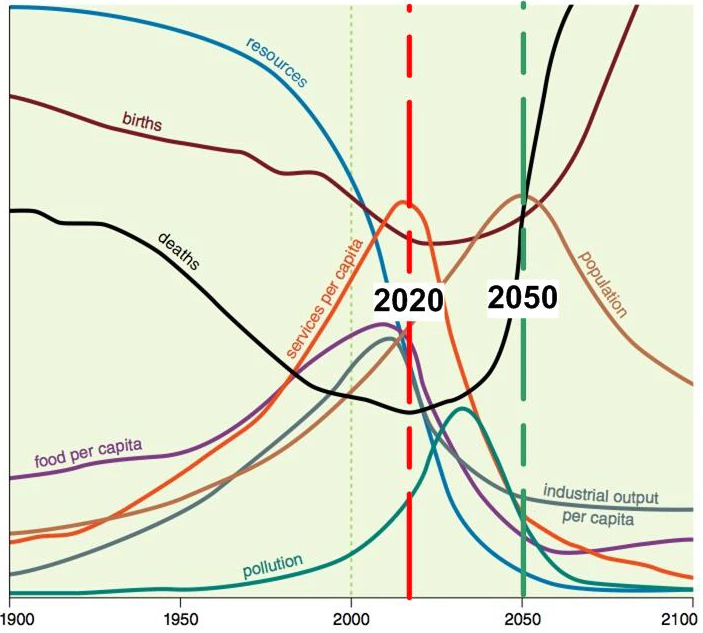When the western world sanctioned Russia they expected Russia to collapse. It didn’t. The first reason is that most of the non-western world didn’t cooperate with the sanctions, but the second is simple: Russia has a food and fuel and mineral surplus.
The world as it stands now is every inter-dependent. The supply networks are dizzyingly complex and a final item like a car is made up of materials and parts extracted, made and assembled in dozens of locations.
The world isn’t always this way: it was like this in the late 19th, but after WWI that changed and the era of free trade ended, collapsing in particular during the Great Depression. The world did not become as “free trade” as it was before WWI again till the early 21st century.
But we are in a period of collapse. The peak, I would guess, will be seen to have been 2020, though different parts of the world economy will peak at different points (peak conventional oil was 2005, fracking and shale oil is not as good.) There will be water peaks, food peaks, peaks for various minerals like copper and so on. There will be a population peak, which will occur after a lot of other peaks. One model, which has been pretty accurate in general terms, is the Limits of Growth model, which regular readers will be familiar with:

Now the thing to understand is that as resources become genuinely scarce rather than simply distributionally scarce (we have more than enough food and have for a long time but people still go hungry) countries will stop trading away what they need and will move to more restricted trade. “We have excess food, you have excess minerals, we will trade with you for this, but we are not selling food generally on the world market to just anyone.”
In periods of genuine shortages, countries stop trading indiscriminately. Food riots are one of the main causes of government collapse and elites losing their lives. Running out of heating or cooling fuel or fuel to run the distribution network (diesel is probably near peak) can lead to fast internal collapse, and so on.
So when there isn’t enough, you stop playing around. You don’t trade unless you’re getting something concrete you need. If you need something, don’t have enough of it and either can’t or would rather not trade for it and still can run your military, you send your military to go get it. (This will become harder and harder though, as modern militaries are resource hogs.)
We’ve had a world economy for a long time now: most of the world since 45, virtually all of the world since the collapse of the USSR (and even before that the USSR, which had food shortages and petroleum to sell, was in the world market.)
Increasingly we will not. Some of this is driven, right now, by competition between the West (which includes S. Korea, Japan and Taiwan) and China, but even much of that is, I suspect, shortages in drag. Soon it will just be “there isn’t enough, who is going to get it?”
Take a good hard look at where you live and what it can make and grow and dig up itself, and how well it can be defended. Because that is going to matter even more in the not-so-far future.
This is a donor supported site, so if you value the writing, please DONATE or SUBSCRIBE.